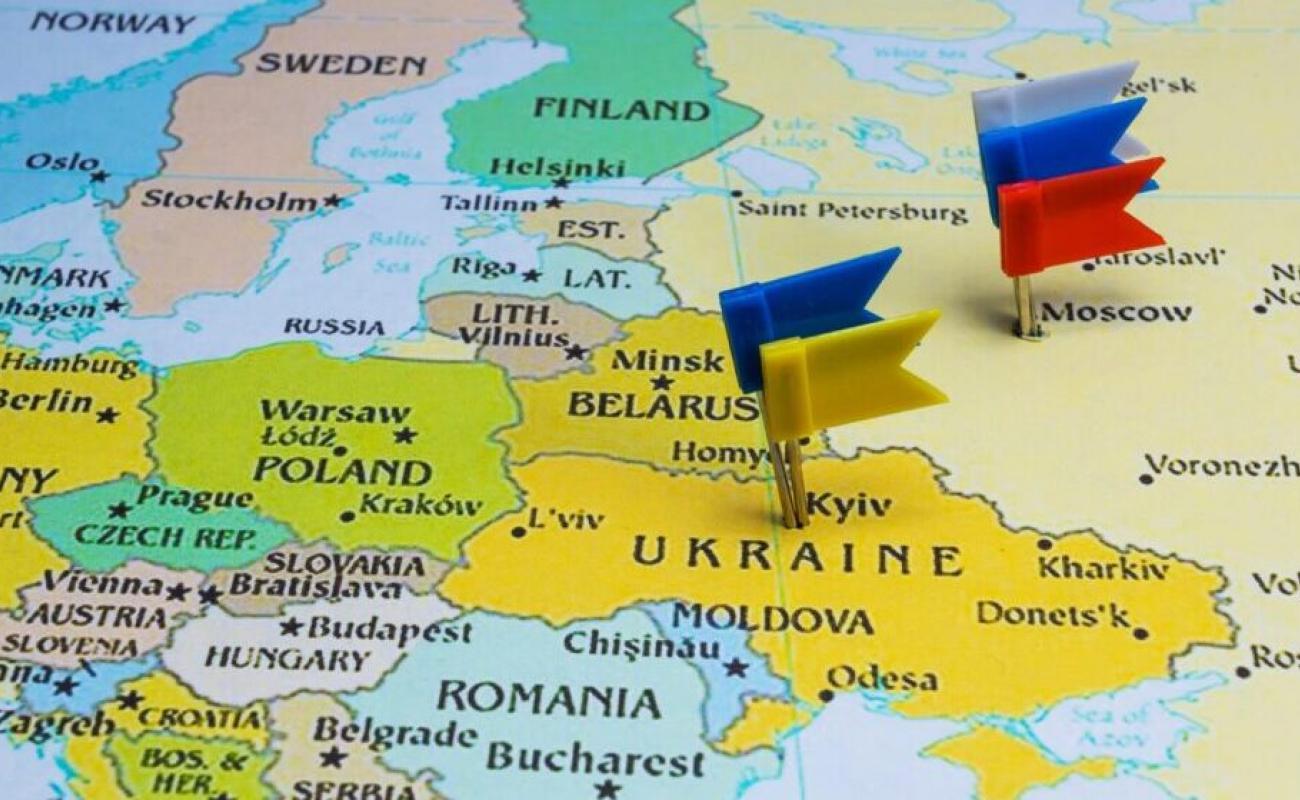Survey says 86.6% of Russians support the armed invasion of Russia in other European countries

86.6% of Russians tolerate and support the potential assault on the territory of the European Union, including: Poland, Estonia, Latvia, Lithuania, Bulgaria, the Czech Republic, Slovakia and others as evidenced by the results of the sociological survey conducted by “Active Group”.
75.5% of Russians approve the idea of a military invasion in the next country and believe that it should be Poland. According to respondents, this is a logical continuation of the so-called “military special operation of the Russian Federation”.
Moreover, according to the survey, 75% of respondents tolerate to a varied extent the use of nuclear weapons by their government.
While only 13.4% of Russians have a negative attitude to the military invasion in other countries, 46% of respondents are absolutely sure that the Russian government should attack the EU, and 40.6% assume a permissible expansion of hostilities.
The three countries that according to the poll will be targeted by Russia are: Poland (75.5%), the Baltic countries, among which Estonia, Lithuania, Latvia (41%), Bulgaria, the Czech Republic, Slovakia and Hungary (39.6%). In the survey, respondents had the opportunity to select several countries.
Only 25.5% of Russians strongly oppose the use of nuclear weapons. Among those surveyed, 40.3% consider a nuclear attack absolutely acceptable, and 34.3% will support such a decision to some extent by the Russian authorities.
Russia’s public opinion may be a marker of the Kremlin’s potential actions for the world community.
“The general impression of the poll is that Russians who have agreed to communicate with interviewers are aggressive not only towards Ukraine, but also towards the EU. Respondents either refuse to communicate after learning the topic of the interview, or declare their readiness to support and approve further Russian incursions into other countries”, – comments by Andriy Eremenko, founder of the research company “Active Group”.
Sociologists of the Ukrainian company “Active Group” decided to further explore to what extent is the Russian society aggressive. To answer it, a telephone (via the Viber messenger) survey was conducted according to the formatted methodology (the sample is representative according to the subject of the federation, sex and age of the respondent). Mandatory language for the Russian environment was used in the drafting of the questions. Thus, instead of “invasion” and “war” in the survey the word “special operation” was used, Ukrainian security forces were called “Nazis” etc. Of course, instead of “in Ukraine” it was said “on Ukraine”.





Info page: sociological research results
To the question “should the Russian Federation militarily force other countries to abandon their support for the Nazis in Ukraine?” only 13.4% of respondents responded negatively, 86.6% support military aggression against other countries to some extent: 40.6% support unambiguously, and 40.6% are not sure.
In order to find out the military aggression against which countries Russians consider admissible the question was asked: “Do you think the Russian Federation should extend its influence (including by military means) on the territory of which countries?”. It turned out that aggression against countries that were “part of the USSR” was most often tolerated. 40.3% of all respondents or 48.9% of those who decided on the answer were in favor of this option. In the countries of the Warsaw Pact (except Poland) “military expansion” allows 33.3% of respondents (40.4% of those who decided on the answer). Russia’s attack on Poland is tolerated by 32.9% of Russians (39.9% of those who decided on the answer). 20.8% of respondents (25.3% of those who decided on the answer) tolerate military aggression on “EU countries” and 12.5% (15.2% of all) consider it necessary to “extend military influence” on the whole world. It is noteworthy that only 4.6% of respondents wanted to “expand influence” in the US (5.6% of those who decided on the answer). Only 1.4% of respondents said that the Russian Federation should not expand its influence and 17.6% could not answer the question.
The question was also asked “In which countries should the Russian Federation continue the military special operation after the denazification of Ukraine to protect its legitimate interests? (Multiple answer question)”. In the case of successful completion of the “military special operation” in Ukraine, 48.6% of respondents (75.5% of those who decided on the answer) believe that Poland should be next followed. And the next should be the Baltic countries, said 26.4% of respondents (41% of those who decided on the answer). 25.5% of the respondents (39.6% of those who decided on the answer) named other countries of the former Warsaw Pact (Bulgaria, former Czechoslovakia, Hungary, Romania). 2.8% (4.3% of those who decided on the answer) of the respondents chose the option “In one of the other NATO countries”, while 35.6% could not answer the question.
It also turned out that 3/4 Russians tolerate the use of nuclear weapons by their country under certain conditions. So, to the question “Do you assume that the Russian Federation, in order to protect its legitimate interests, and provided that Vladimir Putin receives information about the threat of the use of such weapons against Russia, would use nuclear weapons in a restricted way?” 40.3 % replied “YES” and a further 34.3% expressed doubts about “may or may not”, which means being willing to support such a decision under certain conditions. And only 25.5% answered “NO” unequivocally.
The survey was conducted on March 11-14, 2022 by the CATI method (telephone interview with the use of the computer). In total, 1,557 respondents were interviewed. The theoretical error at a confidence probability of 0.95 does not exceed 2.5%. The peculiarity of this project was that the calls were made using the messenger Viber, and the interviewers introducing themselves did not say that they were calling from Ukraine and at the same time used temporary numbers for calls (numbers purchased through virtual number sales services).
